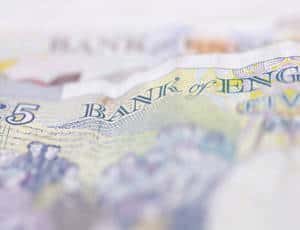 The global economic slowdown has hit the UK economy. According to the ONS, public sector net borrowing was £12.1 billion in August – about £1.4 billion higher compared to the same month last year.
The global economic slowdown has hit the UK economy. According to the ONS, public sector net borrowing was £12.1 billion in August – about £1.4 billion higher compared to the same month last year.
The August figure was much higher than what analysts had forecast – of around £9 billion.
At the end of the month net debt was £1,506 billion – £68.9 billion higher than last year.
The ONS said that the rise in borrowing was due to a drop in income tax paid during the month – as fewer payments due in July were paid late compared to before. In addition, the amount generated from corporation tax wasn’t as high as last year.
The recent figures bring an end to a run of good news for Chancellor George Osborne
With public sector borrowing in August being much higher than expected it is going to be a challenge for the Chancellor to meet his target of cutting borrowing this year and achieve a budget surplus within the next five years.
Since the start of the financial year in April the UK government has borrowed about 10 percent less compared to the same period in 2014. However, if public finances remain on this course the deficit is set to drop to £79 billion this year, shy of the Office for Budget Responsibility (OBR) forecast of £69.5 billion at July’s Budget.
A Treasury spokesperson commented: “Britain’s hard work is paying off with cumulative borrowing £4.4 billion lower than at this point last year.”
“We have more than halved the deficit but there’s more to do with debt remaining higher than 80% of GDP.”
However, Ross Campbell from the Institute of Chartered Accountants in England and Wales told the BBC:
“Sorting our public finances depends on robust tax receipts, so it is disappointing to see corporation and income tax revenues decrease.”
Adding:
“The Spending Review in November is looking at expenditure, but it must also take into account what income can be recouped, or we risk turning deficit reduction into a three parliament problem.”
